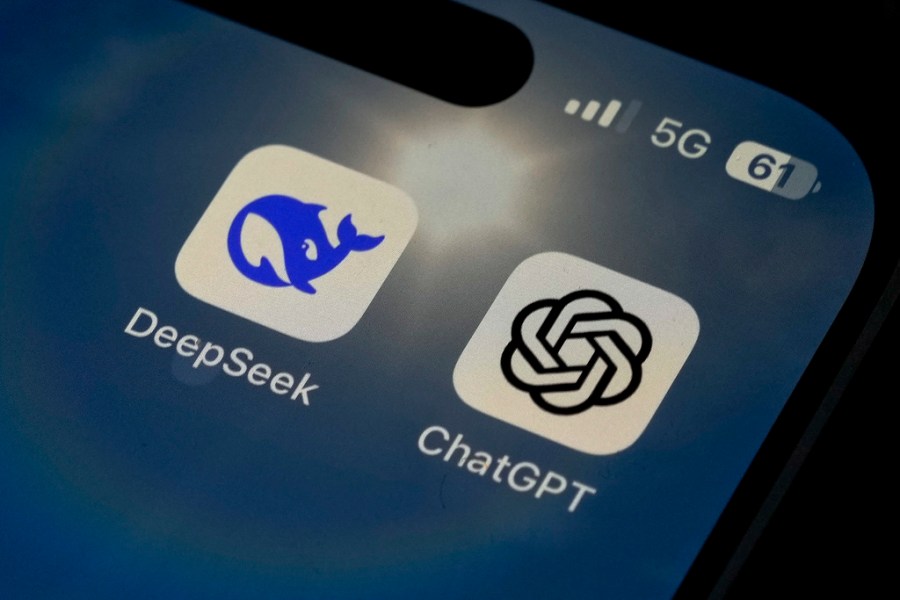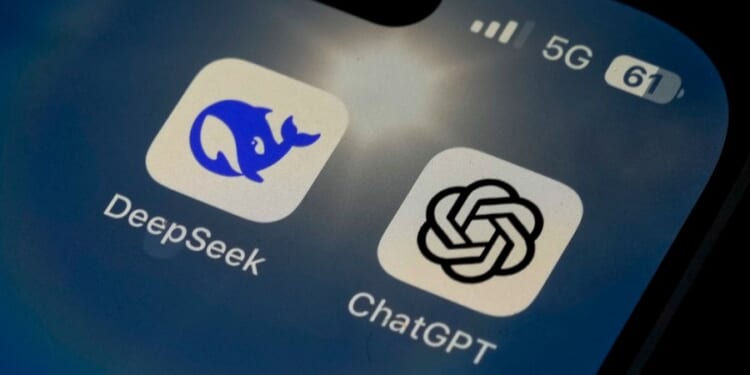
Since artificial intelligence came onto the scene, the U.S. has been leading the world in innovation in this new technology. As with other aspects of our economy, adversarial nations are racing to catch up in an effort to overtake our technology and influence our citizens.
Most recently, we’ve seen this play out with DeepSeek, an AI platform linked to the Chinese Communist Party that aims to attract users in order to capture their personal details and internet activities, to give them to government operatives in Beijing for who-knows-what sinister purpose. This technological wolf-in-sheep’s-clothing should be cause for outrage and concern for everyone.
DeepSeek’s connection to the Chinese Communist Party is potentially far more entrenched than that of other applications before it. The model cloaks its ability to funnel user data directly to a company that belongs to China’s government, according to cybersecurity experts. The U.S. government banned that company, China Mobile, from operating on American soil more than five years ago.
Responding to this threat in real time requires the same kind of bipartisan, bicameral resolve that Congress demonstrated when it banned a Chinese government-connected app, TikTok, on millions of government devices in 2022. That’s why we have partnered across the aisle to put our nation’s security first. We did so by introducing No DeepSeek on Government Devices Act, legislation to safeguard our nation’s government systems from the Chinese Communist Party.
The DeepSeek menace stretches well beyond foreign surveillance and influence. The White House’s lead AI official believes the new company may have built its AI bot by hitching a ride on the back of American innovators. Some claim that after the American-owned OpenAI refined ChatGPT’s ability to generate conversations, DeepSeek’s makers may have flouted OpenAI’s terms in order to leapfrog over the hard work — and time — it would have taken for the Chinese firm to hone its bot’s abilities itself.
The hallmark of the U.S. economy is our intellectual property. Xi Jinping’s party has attempted, for years, to steal it. When DeepSeek cribs off the creativity and sweat U.S. workers have poured into AI development, it undermines America’s economic strength. There’s no reason to kneecap our country’s GDP and job market by ceding large swaths of the AI landscape and market share to a communist regime that didn’t earn it.
While DeepSeek isn’t outright hacking into American phones as Chinese hackers did during the recent Salt Typhoon cyber attacks, the model is part of a new tactic — luring Americans into downloading various tools of the Chinese Communist Party on their devices. And the company has been bold enough to admit to hoarding our data and storing it in China.
What’s more, DeepSeek is not an honest information broker. In exchange for siphoning personal information from American users, the chatbot provides them with China-aligned misinformation on numerous issues. As one outlet put it, the model “has a habit of regurgitating Chinese government talking points.” This influence operation is a major threat to our national security.
Censorship is also part of the DeepSeek menu. The model feigns ignorance when asked about topics that cast China’s regime in an unflattering light, like the Tiananmen Square massacre.
What’s the policy solution? While the public continues to learn more about how DeepSeek endangers their data and selectively feeds them lies, we must protect sensitive government data from falling into the hands of one of our biggest adversaries.
DeepSeek lies to its users, exposes their data to a hostile foreign power, and potentially even exploits American innovation in order to undermine our economy. There’s no defense for allowing this Chinese government bot to burrow into our government devices.
It’s our job to protect federal employees, steward our proprietary information, and defeat falsehoods with facts. Along with our House partners, Reps. Josh Gottheimer (D-N.J.) and Darin LaHood (R-Ill.), we are working to pass the bipartisan No DeepSeek on Government Devices Act into law. It’s an urgent step towards common sense AI policy.
Jacky Rosen is the junior senator from Nevada and is ranking member of the Armed Services Subcommittee on Cybersecurity. Jon Husted is the junior senator from Ohio.











